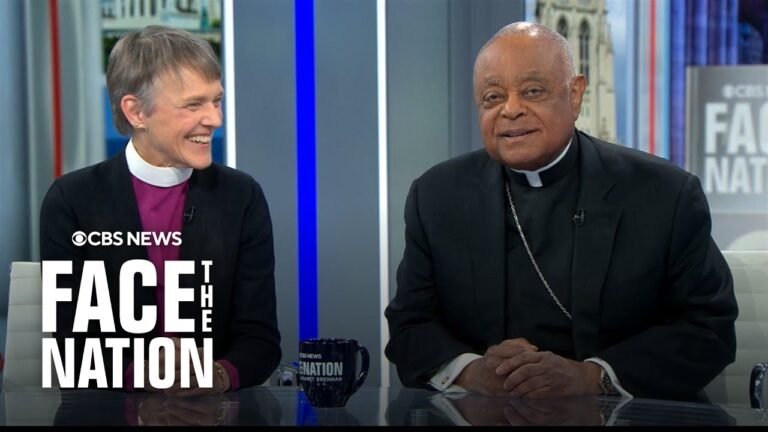France’s Satirical Take on Christianity
In recent years, France has emerged as a focal point for debates surrounding the intersection of faith and culture, often provoking strong reactions with its satirical portrayals of Christianity. From provocative art installations to controversial performances, the French creative scene has taken bold steps to challenge religious norms and provoke thought. This exploration of France’s unique approach to mocking Christianity not only highlights the nation’s rich tradition of secularism but also raises profound questions about freedom of expression, respect for beliefs, and the role of satire in contemporary society.
Why is France criticized for mocking Christianity?
France faces criticism for mocking Christianity due to perceived insensitivity towards religious beliefs, leading to tensions between freedom of expression and respect for faith.
Is Christianity supported in France?
France has deep historical ties to Christianity, particularly through Catholicism, which has shaped its culture, art, and traditions for centuries. With around 51% of the population identifying as Christian, the influence of this faith is evident in various aspects of French society, from the stunning cathedrals that dot the landscape to the annual celebrations of religious holidays.
Despite its Christian roots, France embraces a diverse religious tapestry that includes Islam, Judaism, Buddhism, and Hinduism, reflecting a commitment to secularism and pluralism. This vibrant coexistence of faiths enriches the nation’s cultural identity, emphasizing the importance of tolerance and respect for different beliefs in modern-day France.
Is the number of Christians increasing in France?
Recent trends in religious affiliation in France reveal a notable decline in traditional Catholicism, particularly among younger demographics. Between 2010 and 2020, the proportion of Catholics aged 18 to 49 diminished significantly, dropping from 43% to just 25%. This shift underscores a broader movement away from established religious practices among the youth, reflecting changing cultural and social landscapes.
In contrast, there has been a marked increase in the number of individuals identifying as nondenominational Christians and those belonging to other Christian denominations. This segment grew from 2.5% to 9% during the same decade, indicating a shift towards more personalized forms of spirituality that resonate with younger generations. This growth, albeit modest, suggests a potential reemergence of faith in nontraditional formats amidst a declining interest in organized religion.
Additionally, the rise of Islam and the increasing number of non-religious individuals further complicate the religious landscape in France. Islam saw growth from 8% to 11%, while the non-religious demographic expanded from 45% to 53%. These statistics illustrate a diverse and evolving religious environment, where traditional Christianity is facing challenges but also adapting through new expressions of faith.
What is the controversy surrounding the Last Supper in Paris?
The Paris Last Supper controversy centers around a provocative reinterpretation of the iconic biblical scene where Jesus shares his final meal with his apostles. This modern rendition featured a diverse cast, including drag queens, a transgender model, and a performer embodying Dionysus, the Greek god of wine, in the nude. The artistic choice aimed to challenge traditional representations and spark dialogue about inclusivity and identity.
However, the reimagining did not go unnoticed, as it drew sharp criticism from the Catholic Church in France. Church leaders expressed outrage, arguing that the performance disrespected a sacred moment in Christianity. The controversy ignited a broader discussion about the boundaries of artistic expression and the intersection of faith and modern cultural expressions.
Supporters of the performance argue that it offers a fresh perspective on themes of acceptance and love, essential to the original Last Supper narrative. By incorporating marginalized voices, the reinterpretation seeks to breathe new life into a historical event, inviting audiences to reflect on the evolving nature of faith and community. Ultimately, the Paris Last Supper controversy highlights the ongoing tension between tradition and modernity in the realm of art and religion.
Humor and Faith: The French Perspective
In France, humor and faith often intertwine in a unique cultural tapestry that reflects the nation’s rich history and diverse beliefs. French humor, characterized by its wit and irony, serves as a lens through which many explore profound existential questions. Whether through satire in literature or comedic performances, the French have a knack for addressing the complexities of faith with a light-hearted touch, allowing people to reflect on serious topics without the weight of solemnity.
This approach is evident in the works of celebrated French writers and comedians who skillfully blend religious themes with humor. From Molière’s sharp critiques of hypocrisy in the church to contemporary stand-up routines that poke fun at religious practices, laughter becomes a tool for both unearthing truths and fostering dialogue. This playful engagement with faith enables individuals to confront their beliefs and doubts, creating a space where questioning is welcomed, and exploration is encouraged.
Moreover, this blend of humor and faith resonates deeply within the community, bridging divides and fostering connections. In a society often marked by secularism, the use of humor to discuss spirituality invites diverse perspectives and encourages open conversations. Through shared laughter, the French not only celebrate their cultural heritage but also create a sense of unity, reminding us that faith, like humor, can be a source of strength and comfort in an ever-changing world.
Wit Meets Worship: A Cultural Commentary
In today’s fast-paced world, the intersection of humor and spirituality has become a fertile ground for cultural exploration. As society grapples with profound questions of existence, the clever use of wit serves as a bridge, allowing individuals to engage with complex religious themes in a more accessible manner. This blend of levity and reverence invites a diverse audience to reflect on their beliefs while fostering open dialogue around topics that often feel heavy or taboo.
Comedians, writers, and artists are increasingly using satire and humor to challenge traditional views of faith and spirituality. Through clever anecdotes and playful observations, they dissect the rituals and doctrines that shape our lives, encouraging audiences to reconsider their perspectives. This approach not only disarms potential defensiveness but also promotes a sense of community, as laughter becomes a shared experience that transcends boundaries and invites deeper understanding.
Ultimately, this cultural commentary reveals that faith and humor are not mutually exclusive; rather, they can coexist harmoniously. By embracing wit in the realm of worship, we not only enrich our spiritual experiences but also cultivate a more inclusive environment where diverse beliefs can flourish. This dynamic interplay between laughter and devotion highlights the human experience, reminding us that joy, curiosity, and faith can walk hand in hand.
Laughing Through Belief: Satire in French Society
In the vibrant tapestry of French society, satire serves as a powerful lens through which both humor and critique intertwine, illuminating the idiosyncrasies of life. From the biting wit of political cartoons to the sharp dialogue in contemporary theater, laughter becomes a tool for reflection, allowing citizens to confront their beliefs and challenge the status quo without fear. This unique blend of comedy and commentary not only entertains but also fosters a culture of dialogue, encouraging individuals to engage with pressing social issues while finding solace in shared laughter. Ultimately, the art of satire in France thrives on its ability to provoke thought, unite communities, and inspire change, all while keeping the spirit of humor alive.
The interplay between satire and faith in France highlights a unique cultural landscape where humor often challenges traditional beliefs. As society grapples with the complexities of modern identity, this mockery serves not only as a reflection of changing attitudes but also as a catalyst for deeper conversations about tolerance, belief, and the role of religion in public life. Ultimately, France’s approach invites us to reconsider how we engage with our own convictions in a world that thrives on dialogue and differing perspectives.







